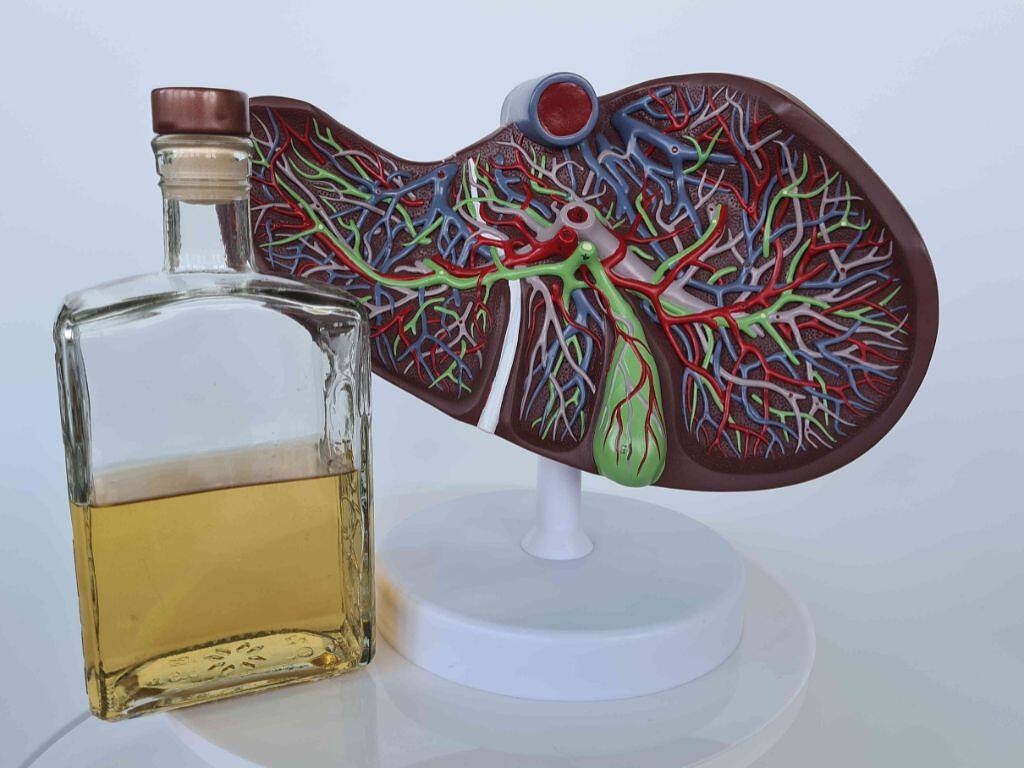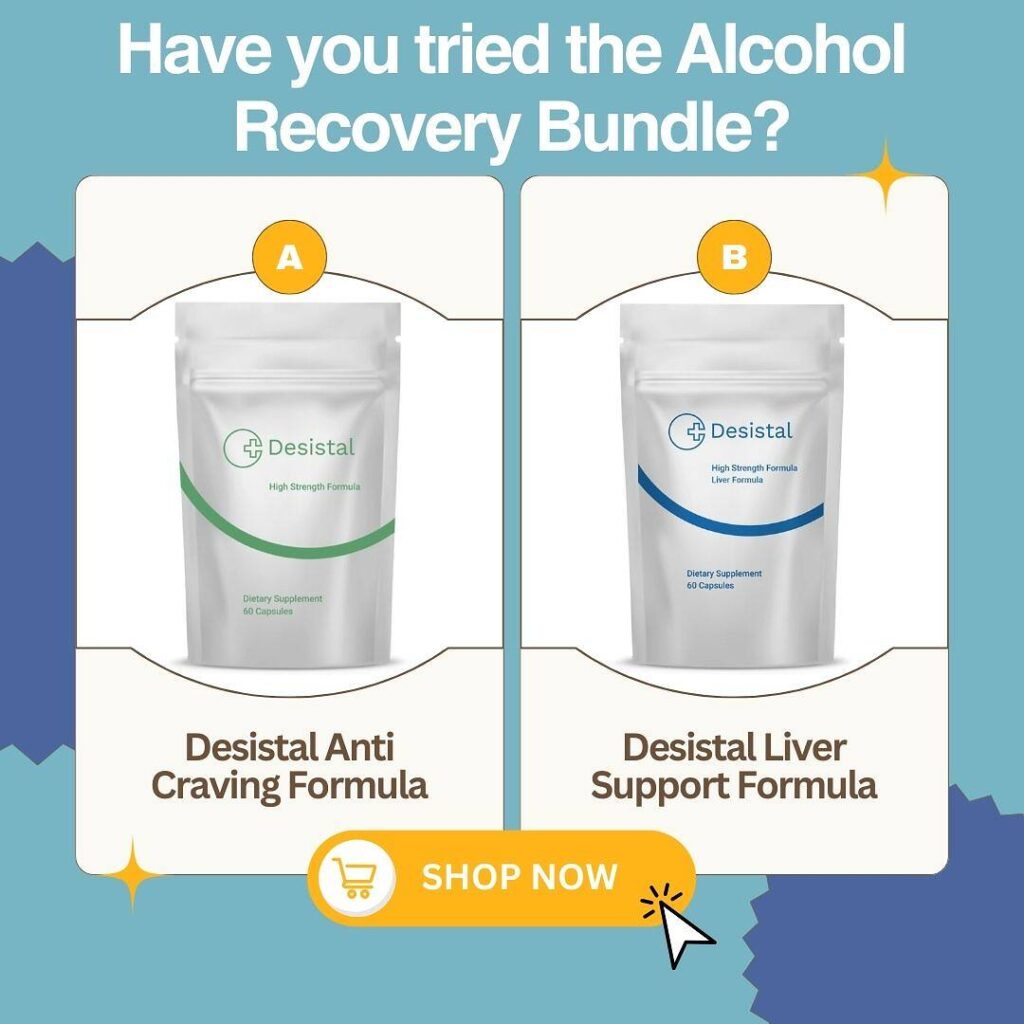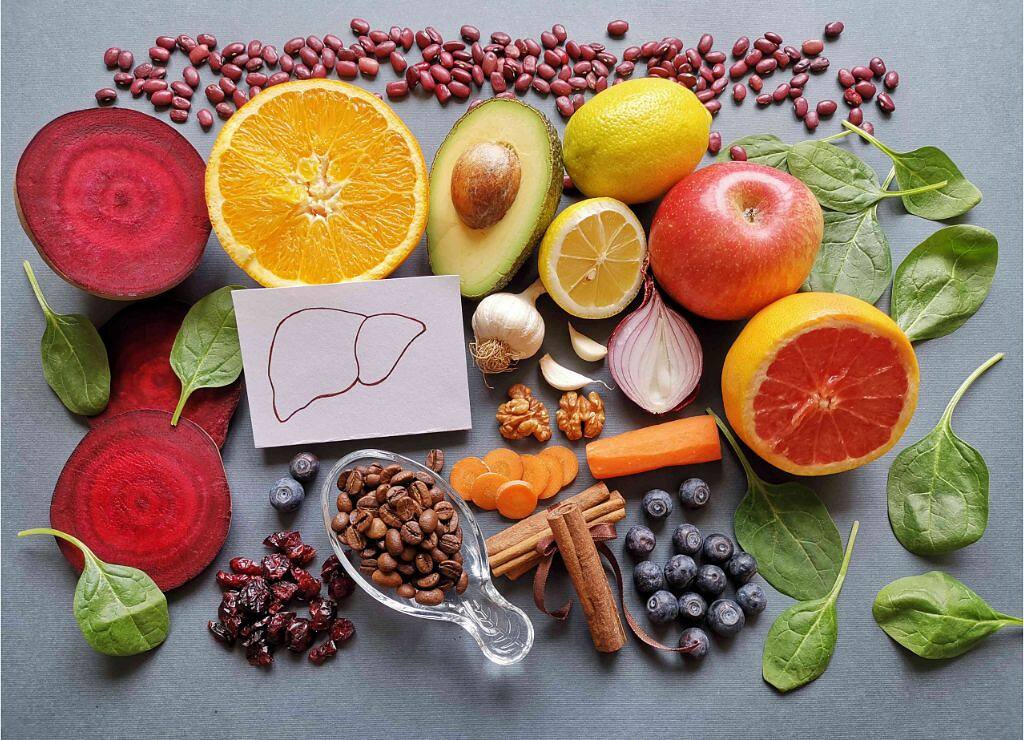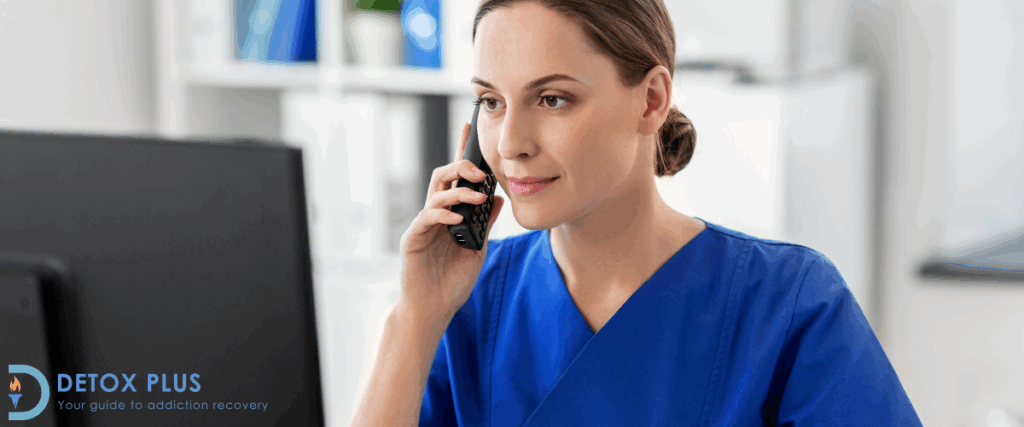Your liver is a powerhouse organ, tirelessly processing everything you consume, including alcohol. When you drink, your liver works overtime to break down the alcohol, but excessive consumption can take a toll. Over time, this can lead to serious issues like fatty liver disease, alcoholic hepatitis, alcoholic liver disease, or even cirrhosis.
The good news is that your liver has an incredible ability to heal itself. With the right approach, you can support your liver’s natural detoxification process and help restore its health. This guide will walk you through practical steps to give your liver the break it deserves and promote overall wellness.
Let’s explore how to cleanse your liver from alcohol and set yourself on the path to better health.
The Impact of Alcohol on Liver Health

When you drink, your liver jumps into action, breaking down alcohol to protect your body and prevent liver diseases. But this process isn’t without consequences. Let’s look at how alcohol affects your liver, both in the short and long term.
Short-Term Effects
If you drink more than your liver can handle, toxic byproducts start to build up. This can lead to that all-too-familiar feeling of a hangover, but it’s also putting stress on your liver.
Long-Term Damage
Over time, excessive drinking can cause more serious liver problems:
- Fatty Liver Disease: This is often the first sign of trouble. Excess fat builds up in your liver cells, making it harder for your liver to do its job.
- Alcoholic Hepatitis: With continued heavy drinking, your liver can become inflamed. This condition can range from mild to severe and can be life-threatening if left untreated.
- Cirrhosis: This is the most serious form of alcohol-related liver disease. Scar tissue replaces healthy liver tissue, leading to permanent damage. While you can’t reverse cirrhosis, quitting alcohol can help prevent further harm.
The Liver Detoxification Process

Your liver is a detox powerhouse, working tirelessly to remove toxins and waste products from your bloodstream. The liver detoxification process involves two phases: phase I and phase II. In phase I, the liver uses oxidation to convert toxins into less harmful substances. Then, in phase II, these substances are conjugated with other molecules to make them more water-soluble, allowing them to be excreted from the body.
A healthy liver efficiently removes toxins and waste products, reducing the risk of liver damage and disease. However, factors like excessive alcohol consumption, poor diet, and environmental toxins can impair liver function and increase the risk of liver disease.
Key Steps to Detox Your Liver from Alcohol

1. Stop Drinking Alcohol
The most crucial step in giving your liver a chance to heal is to put down the bottle. It might sound obvious, but it’s worth emphasising: your liver can’t start recovering while it’s still processing alcohol.
When you stop drinking, you’re giving your liver the break it desperately needs. It’s like hitting the reset button, allowing your body to focus on repair and regeneration rather than constantly dealing with the influx of alcohol.
This doesn’t mean you can never enjoy a drink again. But for now, abstinence is key to kickstarting your liver’s recovery process.
Need Help? Don’t Go It Alone
If you find it challenging to stop drinking on your own, don’t hesitate to seek help. Alcohol dependency is a serious issue, and quitting cold turkey can be dangerous for some people. Consider contacting:- Detox Plus
- Your doctor or healthcare provider
- A substance abuse counselor
- Support groups like Alcoholics Anonymous
2. Stay Hydrated
Water is your liver’s best friend when it comes to detoxing. Think of it as nature’s cleanser, helping to flush out toxins and keep your liver functioning smoothly.
When you’re well-hydrated, your liver can more easily break down fats and remove waste products. This is vital during detox, as your body is working overtime to clear out the remnants of alcohol and repair damaged cells.
Aim for 8-10 glasses of water a day. It might sound like a lot, but your liver will thank you. Here are some tips to hit your hydration goals:
- Start your day with a glass of water
- Keep a reusable water bottle with you
- Set reminders on your phone
- Flavour your water with lemon or cucumber if you need some variety
Remember, other clear fluids count too. Herbal teas can be a great addition to your hydration routine, offering both fluids and beneficial antioxidants.
3. Follow a Liver-Friendly Diet
What you eat can make a big difference in keeping your liver healthy. A balanced diet gives your liver the nutrients it needs to repair and function optimally.
Eat This:
- Fruits and veggies: They’re packed with antioxidants that help protect your liver.
- Whole grains: They provide fibre, which aids in detoxification.
- Lean proteins: They support liver cell repair.
Some liver superfoods to add to your shopping list:
- Garlic: It helps your liver activate enzymes that flush out toxins.
- Turmeric: This spice has powerful anti-inflammatory properties.
- Leafy greens: They’re rich in chlorophyll, which aids in detoxification.
- Berries: They’re loaded with antioxidants.
- Nuts: They provide healthy fats and vitamin E.
- Fish: It’s rich in omega-3 fatty acids, which reduce inflammation.
Avoid These:
- Processed foods: They often contain additives that stress your liver.
- Sugary drinks: They can contribute to fatty liver disease.
- Foods high in saturated and trans fats: They can increase liver fat buildup.
Consider adopting a Mediterranean-style diet. It’s rich in healthy fats, antioxidants, and plant-based foods – all great for liver health.
You don’t need to overhaul your diet overnight. Small, consistent changes can make a big impact on your liver’s recovery.
4. Exercise Regularly

Getting your body moving isn’t just good for your waistline – it’s a powerhouse move for your liver health too.
Why is exercise so crucial? It:
- Boosts blood flow, helping your liver filter blood more efficiently
- Helps burn liver fat, reducing the risk of fatty liver disease
- Lowers inflammation throughout your body, including your liver
So, what’s the magic formula? Aim for about 30 minutes of exercise five days a week. Don’t worry if you’re not a gym rat – there are plenty of options:
- Brisk walking or jogging
- Swimming
- Cycling
- Dancing
- High-Intensity Interval Training (HIIT)
- Yoga or Pilates
The key is to find something you enjoy. If you hate running, don’t force yourself to jog. Maybe a dance class or a bike ride is more your speed. The best exercise is the one you’ll actually do consistently.
Start small if you need to. Even a 10-minute walk is better than nothing, and you can gradually increase your activity level over time.
Exercise isn’t just about physical health. It can also help manage stress and improve sleep – both important factors in overall liver health. So lace up those trainers and get moving. Your liver will thank you!
5. Consider Liver Cleansing Supplements
Some people find that supplements give their liver detox an extra boost. Here are a few popular options:
- Milk Thistle: This herb has been used for centuries to support liver health. It contains silymarin, which may help protect liver cells from damage.
- Dandelion Root: Not just a pesky weed, dandelion root is thought to stimulate liver function and aid in detoxification.
- Artichoke Extract: Known for its potential to increase bile production, which helps the liver flush out toxins.
Other supplements that some people find helpful include turmeric, N-acetyl cysteine (NAC), and alpha-lipoic acid.
Don’t just start popping pills without talking to your doctor first. While these supplements are natural, they can still interact with medications or cause side effects. Plus, what works for one person might not be right for another.
Your healthcare provider can help you decide if supplements are necessary for you and, if so, which ones are safe given your individual health situation. They might even recommend blood tests to check your liver function and nutrient levels before suggesting any supplements.
Supplements should complement, not replace a healthy diet and lifestyle. They’re not a quick fix but a potential addition to your overall liver health strategy.
6. Get Adequate Rest
While you’re catching some Z’s, your liver is hard at work. Sleep isn’t just about feeling refreshed – it’s a time for your liver to repair and regenerate.
During sleep, your body goes into maintenance mode. For your liver, this means:
- Processing toxins more efficiently
- Producing new liver cells
- Balancing enzyme and hormone levels
Aim for 7-8 hours of quality sleep each night. It might seem like a lot, especially if you’re used to burning the candle at both ends, but your liver will thank you.
Having trouble sleeping? Try these tips:
- Stick to a consistent sleep schedule, even on weekends
- Create a relaxing bedtime routine
- Keep your bedroom cool, dark, and quiet
- Avoid screens for at least an hour before bed
- Skip caffeine in the afternoon and evening
Good sleep hygiene is just as important as diet and exercise in your liver detox journey.
Sweet dreams – your liver’s counting on it!
Timeline for Liver Recovery
Wondering how long it’ll take your liver to bounce back? Well, it’s not a one-size-fits-all answer. Your liver’s recovery time depends on a few key factors:
- How much and how often you’ve been drinking
- Your overall health and lifestyle
- The extent of existing liver damage
The good news? Your liver is a resilient organ. For many people, abstaining from alcohol for just 2-4 weeks can make a noticeable difference. During this time, you might experience:
- Reduced liver inflammation
- Improved liver function
- Better overall energy levels
But remember, this is just the beginning. While you might feel better after a month, your liver may still be in recovery mode.
If you’ve been a heavy drinker for years or if you’ve developed more serious conditions like cirrhosis, the road to recovery might be longer. In some cases, lifelong abstinence from alcohol is necessary to prevent further damage.
No matter where you’re starting from, every day without alcohol is a win for your liver. Be patient with yourself and celebrate the small victories along the way. Your liver is working hard to heal – give it the time it needs.
Signs of Liver Damage from Alcohol
Your liver might be in trouble, but how would you know? Here are some common red flags to watch out for:
- Feeling exhausted all the time
- Losing your appetite
- Nausea or vomiting
- Yellowing of your skin or eyes (jaundice)
- Dark urine
- Pale, clay-coloured stools
- Pain or swelling in your belly
- Swollen legs or ankles
Now, don’t panic if you’ve had a rough night and feel a bit off the next day. We’re talking about persistent symptoms here.
But here’s the tricky part: your liver can take a beating without showing obvious signs at first. By the time symptoms appear, there might already be significant damage.
So, when should you see a doctor? Simple – if you notice any of these symptoms and they don’t go away quickly, it’s time to make an appointment. Even if you’re unsure, it’s better to get checked out. Your doctor can run tests to assess your liver function and catch any issues early.
Remember, you know your body best. If something feels off, don’t ignore it. Your liver will thank you for being proactive.
Additional Tips for Supporting Liver Detox

Want to give your liver some extra TLC? Here are a few more tricks to try:
- Sip on Green Tea: This antioxidant powerhouse can help reduce liver inflammation. Plus, it’s a great alternative to alcohol or sugary drinks. Aim for 1-2 cups a day.
- Consider a Short Cleanse: Some people swear by a brief fasting or juice cleanse to give their liver a breather. But tread carefully – extreme diets can do more harm than good. If you’re curious, chat with a nutritionist first.
- Watch Your Meds: Your liver processes medications, too. Be cautious with over-the-counter pain relievers, especially acetaminophen. Always follow dosage instructions and ask your doctor if you’re unsure.
-
Mix Up Your Hydration: Water is great, but you can also try:
- Coconut water for electrolytes
- Herbal teas like peppermint or ginger
- Infused water with lemon, cucumber, or berries
- Skip the sugary cans and energy drinks: They’re just extra work for your liver.
These are supplementary tips. They work best alongside the main steps we’ve discussed, like abstaining from alcohol and eating a balanced diet.
Every little bit helps in your liver detox journey. Find what works for you and stick with it. Your liver’s counting on you!
Conclusion
Let’s recap the key steps to help your liver bounce back:
- Put the brakes on drinking. Your liver needs a break to heal.
- Hydrate, hydrate, hydrate. Water is your liver’s best friend.
- Fuel up with liver-friendly foods. Think fresh, unprocessed, and nutrient-rich.
- Get moving. Regular exercise boosts liver function and overall health.
- Prioritise sleep. Good rest equals better liver regeneration.
- Consider supplements, but check with your doctor first.
Detoxing your liver isn’t a quick fix – it’s about making lasting changes. These steps aren’t just a temporary cleanse but the building blocks of a liver-friendly lifestyle.
| Professional Support for Your Liver Health Journey If you’ve been a heavy drinker or have any concerns about your liver health, it’s crucial not to go it alone. Professional guidance can make a significant difference in your recovery and liver health restoration |
Detox Plus is here to help. Our experienced team specialises in alcohol detox and recovery, offering:
- Medically supervised detox programs
- Personalised treatment plans
- Expert advice on liver health restoration
- Comprehensive aftercare support
Don’t wait to prioritise your liver health. Take the first step towards a healthier you today.
Contact Detox Plus now at 02072052734 for a confidential consultation.
Our dedicated professionals are ready to answer your questions, address your concerns, and guide you through the process of liver detox and recovery. We’re committed to supporting you every step of the way.
Remember, your liver does so much for you every day. By reaching out for professional help, you’re taking a crucial step in returning the favour. Let Detox Plus help you on your journey to better liver health and overall well-being.
Call 02072052734 – Detox Plus is standing by to support your liver health and recovery journey.
Here’s to your health – and your liver’s!
FAQs
When is the best time to book an alcohol detox?
As soon as you feel ready to break free from the clutches of alcohol, you should seek support for alcohol detox. The earlier that you go through the process, the more likely you are to reverse the negative effects of alcohol and begin your journey to sobriety.
Is alcohol detox dangerous?
Detoxing from alcohol can be dangerous if you withdraw from it too rapidly and without professional help. This is because regular alcohol consumption disrupts usual brain function. Cutting your alcohol supply once the body adjusts and becomes reliant on alcohol to maintain balance can be a shock to the system and potentially dangerous.
We advise you to always be prepared before attempting alcohol detox and to have a support system available to prevent any medical emergencies.
Can you book an alcohol detox for a loved one?
While it’s possible to book someone into a detox centre, detoxing from alcohol alone will not address the underlying issues that cause alcoholism – an illness that provokes compulsive drinking to satisfy cravings.
For a successful recovery, your loved one must be willing and ready to receive help for underlying trauma. Otherwise, they are likely to go straight back to alcohol or other substances as a coping mechanism despite the physical detox.


